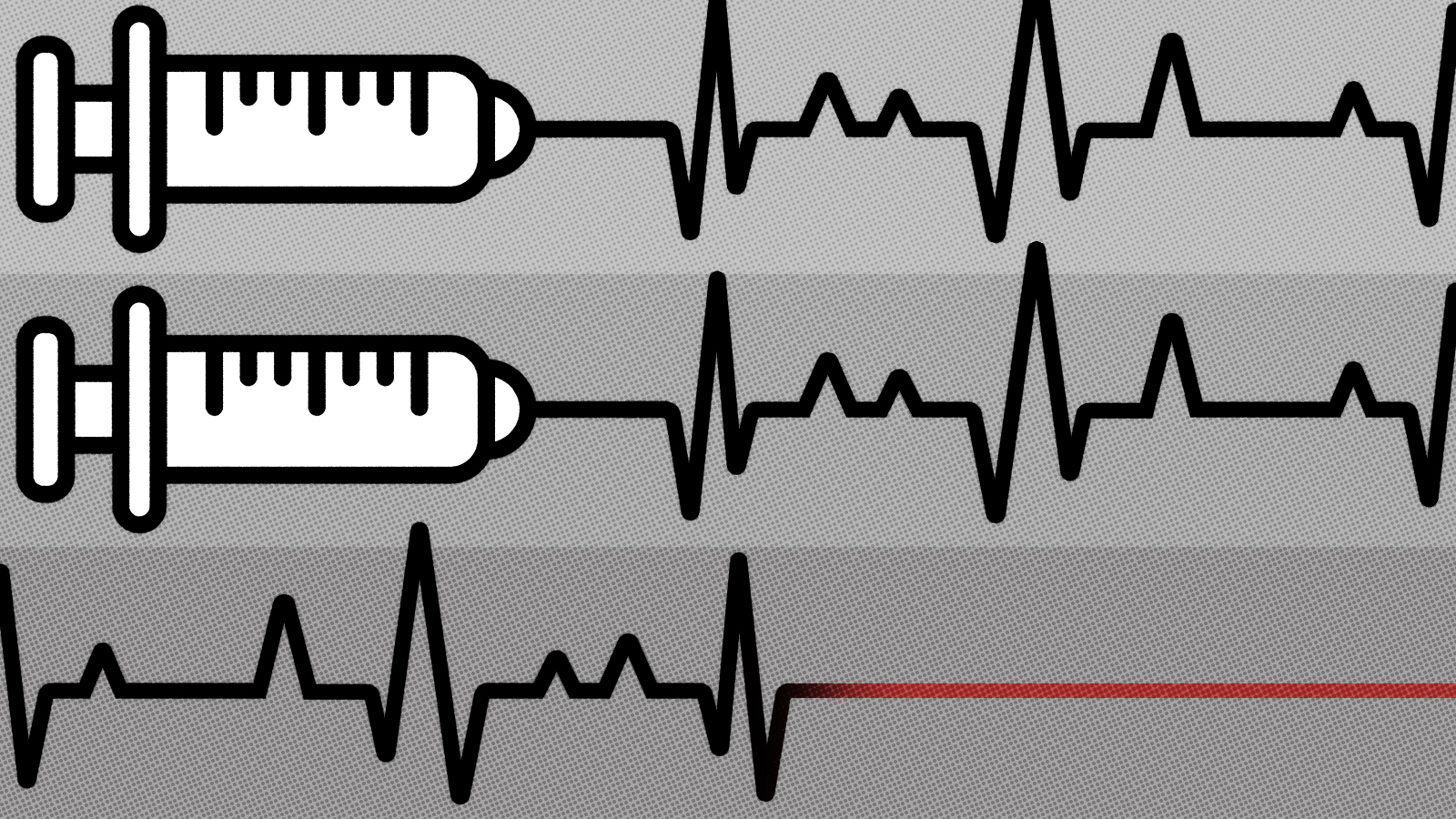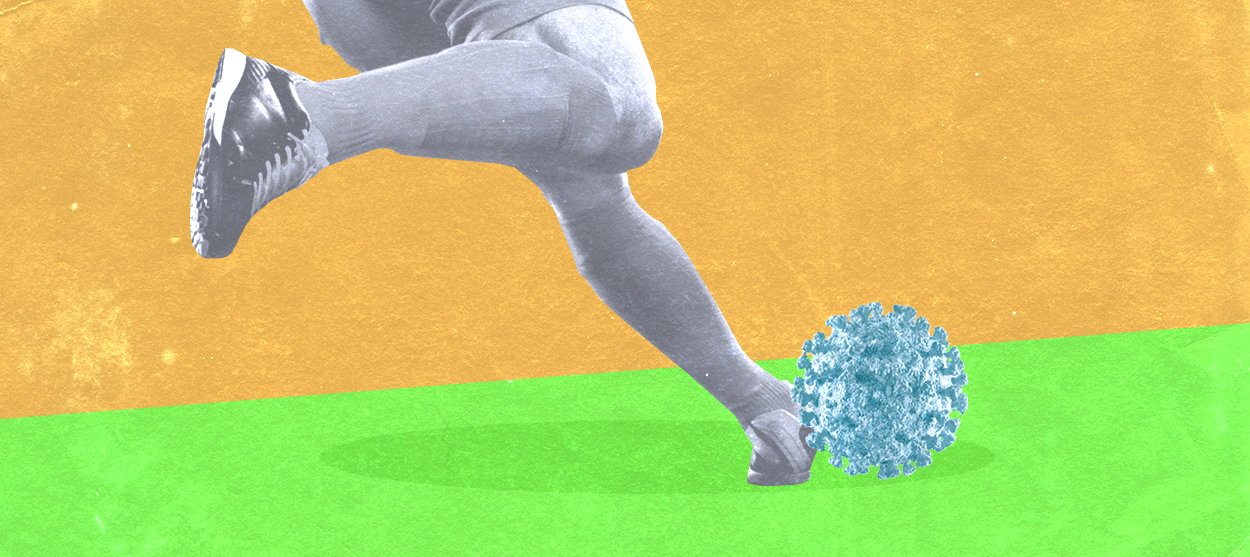7 things health experts said were good for you in 2018
Holding hands reduces physical pain. Full-fat dairy can prevent heart disease. And more!

A free daily email with the biggest news stories of the day – and the best features from TheWeek.com
You are now subscribed
Your newsletter sign-up was successful
1. Organic foods may reduce cancer risk. For almost five years, researchers in France regularly asked nearly 70,000 volunteers how often they ate organic fruit, vegetables, meat, and other products. During that period, the quarter of participants who ate the most organic foods were 25 percent less likely to get cancer than the quarter who ate the least, even after accounting for age, income, and other risk factors. Lead author Julia Baudry suspects the disparity is because organic foods have lower levels of pesticides, which can mimic hormones in the body and increase cancer risk. Promoting organic food consumption, she says, could be a "promising preventive strategy against cancer."
2. Holding hands can reduce physical pain. In a University of Colorado Boulder study, 22 women were subjected to mild pain; first when their male partner was holding their hand, and then when he was not. The women reported that holding hands reduced the intensity of their pain by an average of 34 percent. Brain scans taken during the experiment showed that when the couple linked hands, their brain waves became synchronized — and that this "coupling" effect was even greater when the women were in pain. Lead author Pavel Goldstein says the research "illustrates the power and importance of human touch."
3. Saunas could be as beneficial for your heart as moderate exercise. In a study in Finland, 102 middle-aged adults with at least one heart disease risk factor — such as high blood pressure or obesity — had a 30-minute sauna session. Afterward, their blood pressure was lower, their heart rate was higher, and their arteries had gained elasticity. Heat exposure can widen blood vessels and improve blood flow, and sweating has a natural diuretic effect, lowering blood pressure. "Sauna use is recommended," says co-author Tanjaniina Laukkanen, "and it seems that more is beneficial."
The Week
Escape your echo chamber. Get the facts behind the news, plus analysis from multiple perspectives.

Sign up for The Week's Free Newsletters
From our morning news briefing to a weekly Good News Newsletter, get the best of The Week delivered directly to your inbox.
From our morning news briefing to a weekly Good News Newsletter, get the best of The Week delivered directly to your inbox.
4. Full-fat dairy may help protect against heart disease and stroke. Researchers examined data from more than 130,000 people across 21 countries over nine years. Participants who ate two or more daily servings of full-fat dairy — a serving was 8 ounces of milk or yogurt or a half-ounce of cheese — had a 22 percent lower risk of heart disease, a 34 percent lower risk of stroke, and a 23 percent lower risk of dying from cardiovascular disease. Study author Mahshid Dehghan says that while full-fat dairy is high in saturated fat, it contains other important nutrients, including calcium and vitamin K.
5. To-do lists could help you sleep. A Baylor University study divided nearly 60 volunteers into two groups before a strictly enforced bedtime: Half were asked to write a list of things they needed to do over the next few days, and the other half listed tasks they'd already completed. Brain scans taken as they slept found that the to-do-list writers dozed off nine minutes faster on average — an effect similar to that of some pharmaceutical sleeping aids. "Throughout the day, we have all these things cycling through our head," says lead author Michael Scullin. Writing "helps us hit the Pause button."
6. Leg exercises appear to be crucial for brain health. Researchers immobilized the hind legs of mice for 28 days, then examined the subventricular zone in their brains, where neural stem cells produce new neurons. They found that the number of neural stem cells — which help the brain renew itself — had plummeted by 70 percent. Declines in oxygen levels associated with reduced physical activity had also altered the rodents' metabolism. The research suggests that leg movement sends signals to the brain that trigger new cell growth.
7. Turmeric could help improve memory and ease depression among those with age-related mental decline. Researchers recruited 40 volunteers, ages 50 to 90, all with memory complaints but none with dementia. Half took curcumin, an active compound of the Indian spice turmeric, twice a day for 18 months, while the other half received a placebo. Those taking curcumin saw a 28 percent improvement in memory function, chalked up better mood scores, and had less plaque buildup in the brain. Study leader Gary Small says curcumin may reduce brain inflammation, which has been linked to Alzheimer's and depression.
A free daily email with the biggest news stories of the day – and the best features from TheWeek.com
-
 The ‘ravenous’ demand for Cornish minerals
The ‘ravenous’ demand for Cornish mineralsUnder the Radar Growing need for critical minerals to power tech has intensified ‘appetite’ for lithium, which could be a ‘huge boon’ for local economy
-
 Why are election experts taking Trump’s midterm threats seriously?
Why are election experts taking Trump’s midterm threats seriously?IN THE SPOTLIGHT As the president muses about polling place deployments and a centralized electoral system aimed at one-party control, lawmakers are taking this administration at its word
-
 ‘Restaurateurs have become millionaires’
‘Restaurateurs have become millionaires’Instant Opinion Opinion, comment and editorials of the day
-
 Do unvaccinated COVID patients deserve scarce care? A doctor weighs in.
Do unvaccinated COVID patients deserve scarce care? A doctor weighs in.The Explainer Justice, judgment, and the last ICU bed
-
 How to vaccinate the anti-vaxxers
How to vaccinate the anti-vaxxersThe Explainer Instead of blaming people for not doing the right thing, let's focus on eliminating the obstacles to vaccination that still remain
-
 The U.S. could double its COVID-19 vaccine availability overnight. What's the holdup?
The U.S. could double its COVID-19 vaccine availability overnight. What's the holdup?The Explainer How the FDA could approve a more efficient vaccine rollout
-
 The October Surprise nobody wanted
The October Surprise nobody wantedThe Explainer Trump has COVID-19. Really, 2020?
-
 Life is worth living
Life is worth livingThe Explainer What's driving America's rising suicide rate?
-
 Social workers are masters at de-escalation. Here's what the police can learn from them.
Social workers are masters at de-escalation. Here's what the police can learn from them.The Explainer Knowing how to peacefully resolve conflict, rather than exacerbate it, can save lives
-
 Settling in for the long pandemic
Settling in for the long pandemicThe Explainer Life won't be back to "normal" anytime soon
-
 Sports reveal how much America is trailing the rest of the world
Sports reveal how much America is trailing the rest of the worldThe Explainer MLS and other American leagues are stumbling through their pandemic restart plans